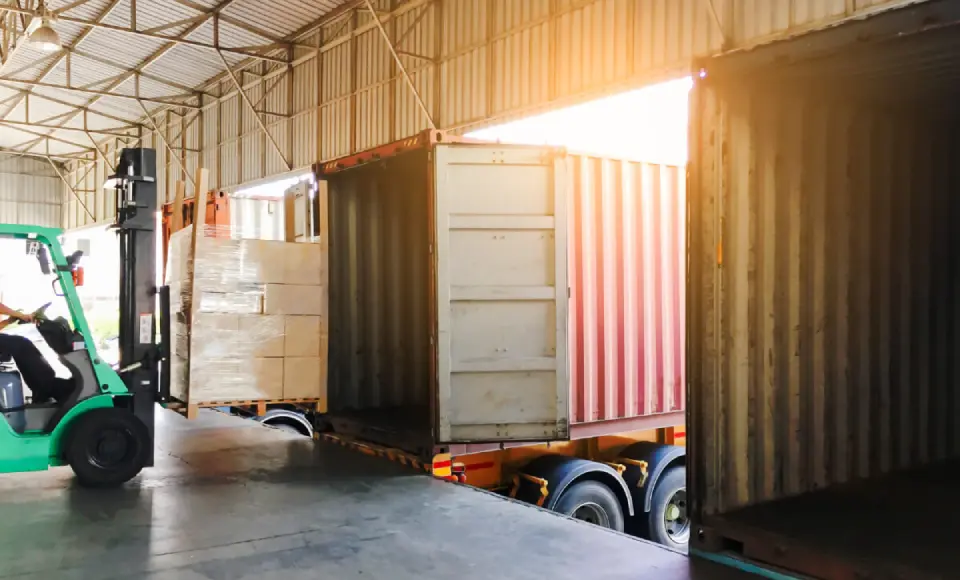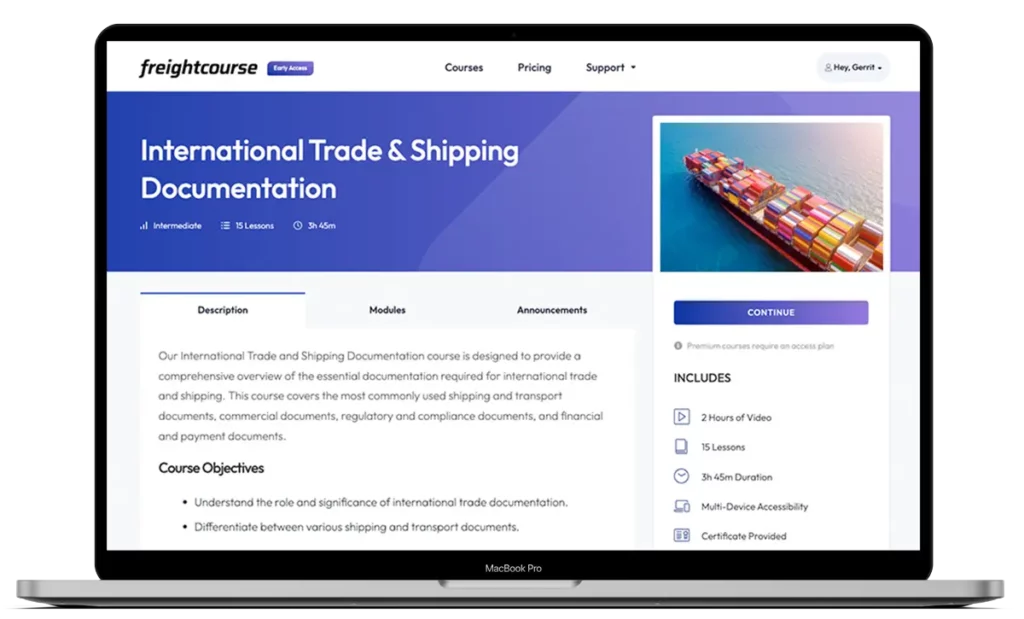Consolidation services play a vital role in the supply chain by optimizing transportation efficiency and reducing costs for companies through consolidating cargo from multiple shippers into larger shipments.
These types of consolidation services are offered by freight forwarders, certain shipping lines, and also co-loaders. Co-loaders are companies that specialize in consolidating cargo for a variety of customers and shipping them as less-than-container load (LCL) cargo.
These services play a vital role to beneficial cargo owners (BCOs) who don’t have enough cargo to fill an entire shipping container. In today’s market Vanguard Logistics, Shipco, ECU Worldwide, and CWT Globelink have the largest market share when it comes to co-loaders. Rather than only catering to the consolidation demands of shippers or consignees, co-loaders work closely with freight forwarders.
This article aims to explore the important role that co-loaders play in today’s logistics industry, how they add value to shippers and freight forwarders, what services they provide, and more!
Role Co-Loaders Play in the Shipping Industry
Co-loaders play a crucial role in the shipping industry, particularly in the process of cargo consolidation, which enables the optimization of transport resources and lowers overall shipping costs through economies of scale.

By consolidating multiple smaller shipments into larger loads, co-loaders achieve economies of scale, making the transportation process more cost-effective. In essence, cargo owners pay less than having to ship an entire container with underutilized cargo space.
While most freight forwarders offer LCL services, some shippers with frequent LCL prefer working directly with co-loaders for cost-efficiency. Freight forwarders also work directly with co-loaders, as they offer flexibility and reliability through their established networks and partnerships with various carriers.
Who Uses Co-Loaders?
Here are the two primary markets for co-loaders, which are shippers and freight forwarders. Let’s take a closer look!
- Shippers – Shippers are the key clientele for co-loaders, and they choose to utilize LCL service when their shipment volume does not fill an entire container. While freight forwarders also provide LCL service, co-loaders specialize in consolidation, allowing them to typically offer the best rates.
- Freight Forwarders – Freight forwarders often collaborate with co-loaders for spot LCL shipments. Partnering with co-loaders allows them to maximize space utilization and achieve cost-effective transportation. When freight forwarders don’t have their own consol for specific trade lanes, they typically choose to work with a co-loader instead.
Co-Loader Consolidation Processes
Shipment consolidation typically takes place inside a warehouse, which is typically referred to as a Container Freight Station (CFS). These consolidation warehouses are usually located within free-trade zone within the port premises. Below, you’ll find a general process of how co-loaders consolidate and load cargo in their CFS.
- Receiving The Shipment: Co-loaders receive shipments from various suppliers or customers, collecting relevant cargo details including type of cargo, volume, and destination.
- Cargo Assessment: Co-loaders assess the shipments by measuring actual volume and weight. Finally, they check and finalize the total number of cartons or pallets needed for consolidation.
- Consolidation: Co-loaders organize and sort shipments based on destination. They make use of palletizing, shrink-wrapping, and other methods to ensure cargo is secured at all times.
- Documentation: Documentation and proper identification for each individual shipment is needed to ensure all shipments are identified with proper labeling (these labels include shipping and cargo details).
- Loading: Once the cargo is consolidated, the stuffed container is sealed and brought to the port prior to cutoff time. It’s also at this stage the shipper must process its export customs clearance.
- Shipping: The shipping container is then transported to the port before it’s loaded onto the ocean vessel.
- Deconsolidation: Once the container has arrived at the port of discharge, it’s deconsolidated at the destination Container Freight Station. The consignee may proceed with import customs clearance and prepare for the final delivery.
Other Services That Co-Loaders Provide
In addition to cargo consolidation, co-loaders also provide other types of services that enhance the overall supply chain process for their customers. These services commonly customs brokerage, warehousing, inventory management, cargo insurance, and more.
By offering these additional services, co-loaders help simplify and streamline the logistics process for their customers. Below, you’ll find some of these additional services further explained.
- Customs Clearance – Customs clearance is required in international trade to ensure compliance with the customs regulations of each respective country. Co-loaders offer customs clearance services in cases where the shipper does not have a nominated broker.
- Documentation – Co-loaders also offer documentation management by managing the necessary submissions to the shipping lines and filing the inward foreign manifest. They are familiar with the necessary paperwork, regulations, and requirements involved in international shipping to ensure delays are minimized or avoided.
- Shipment Tracking – Shipment tracking services that co-loaders off to their customers include real-time monitoring and visibility of the location, status, and progress of a shipment.
- Cargo Insurance – If customers need insurance services, co-loaders get in touch with insurance providers to get a better understanding of the shipper’s specific coverage needs.
Challenges Faced By Co-Loaders
In this section, we take a look at some of the real-world business challenges faced by co-loaders in the logistics industry.
Cargo Liability
Compared to loading the cargo directly in the shipper’s premises, utilizing LCL services involves multiple handling processes in the CFS, encompassing activities like packing, sorting, crating, stuffing, loading, and unloading.
Additional handling inadvertently increases the risk of cargo damage, which the co-loader may be liable for. Cargo claims often come with a financial penalty and required time to be resolved.
Timeline Coordination
Co-loaders face the challenge of managing multiple shippers, consignees, and other stakeholders within the supply chain, which can be particularly demanding due to the diverse nature of the cargo involved, including potentially hazardous materials.
This requires effective coordination internally and externally, expertise in handling different types of cargo, and maintaining strong relationships with customers. Efficient coordination and communication are essential in operating a co-loading business, given the dynamic and fluid nature of the industry.
Compliance with regulatory requirements, staying updated on the latest port cutoff times, promptly sending departure and arrival notices, and ensuring timely invoicing all demand close attention are common requirements for co-loaders.
Documentation
Consolidating multiple goods from various shippers into a single container results in an increased number of documentation (e.g. issuance of bills of lading, commercial invoices, packing lists, etc).
For instance, when shipping to destinations like the United States, timely submission of the necessary documents, including accurate and confirmed bill of lading details, is crucial before transshipment. Similarly, in cases of short transit times, prompt submission of complete and precise bills of lading information is vital to avoid regulatory and monetary penalties.
Submitting incorrect or inaccurate shipping documents can have costly repercussions, such as documentary amendments, delays in securing the cargo, and accumulated warehousing charges.
Advantages of Co-Loading
Using a co-loader to consolidate your cargo can offer a variety of advantages for shippers and freight forwarders. Let’s take a closer look at these benefits.
- Destination Network – Finding competitively priced vendors for destination services that are considered niche markets is hard to find and time-consuming. Co-loaders work with a wide variety of vendors at the destination to ensure a more streamlined process.
- Volume Flexibility – Co-loaders excel in handling flexible volume requirements from shippers by accommodating varying shipment sizes and effectively optimizing space utilization.
- Hassle-Free – Booking shipments with co-loaders frees shippers from having to look and wait for equipment availability such as trucks, chassis, and containers. All a shipper needs to do is deliver the cargo to the assigned CFS.
Disadvantages of Co-Loading
However, there are also disadvantages when it comes to co-loading. Here are the most common ones we’ll be taking a closer look at:
- Higher CBM Costs – Although the cost per cubic meter for LCL shipments is higher than for FCL shipments, the overall cost is lower because LCL shipments utilize only a portion of the full container capacity, allowing multiple shipments to share the cost of transportation.
- Longer Shipping Times – Co-loaders typically ship consolidated containers weekly to bi-weekly, depending on the amount of cargo that was consolidated. Therefore, the overall shipping time may be longer than shipping an FCL.
- Cargo Damage Risks – Multiple handling during consolidation and deconsolidation processes increases the risk of cargo damage, which could ultimately delay shipments and tie up vital resources.

Get Free Course Access
If you enjoyed the article, don’t miss out on our free supply chain courses that help you stay ahead in your industry.

Gerrit Poel
Co-Founder & Writer
at freightcourse
About the Author
Gerrit is a certified international supply chain management professional with 16 years of industry experience, having worked for one of the largest global freight forwarders.
As the co-founder of freightcourse, he’s committed to his passion for serving as a source of education and information on various supply chain topics.
Follow us